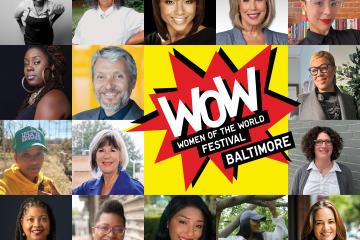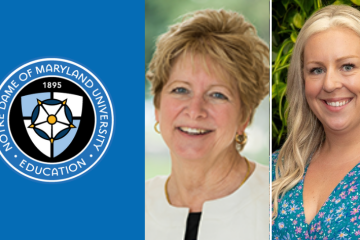‘She was a Champion for All Women’
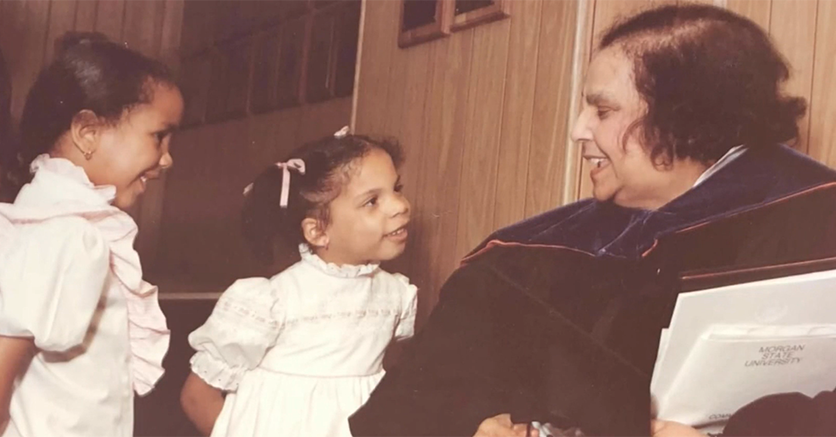
(BALTIMORE, Md.) – Jennifer Mitchell’s grandmother, Juanita Jackson Mitchell, was the first African American woman to practice law in Maryland, filing lawsuits that desegregated pools, restaurants, and parks. She was pivotal in Maryland becoming the first southern state to integrate schools after the landmark Brown vs. Board of Education decision. She and her husband, Clarence Mitchell Jr., chief lobbyist for the NAACP known as “the 101st Senator,” worked tirelessly to ensure civil rights for all people.
Growing up, Jennifer knew her as Grandma Mitchell. Today, as an assistant professor of nursing at Notre Dame of Maryland University, Jennifer draws inspiration from her grandmother as she encourages her students to advocate for the underserved. As the Maryland Center for History and Culture prepares to honor Juanita Jackson Mitchell and other civil rights activists in the “Passion and Purpose” exhibit, opening May 20, 2022, Jennifer reflects on her grandmother’s legacy:
What do you remember about your grandmother?
My grandmother was family-oriented. As the matriarch, she would host the family dinners for major holidays, including Easter and Christmas. My grandmother played the piano, and she sang opera. Every holiday, she and her three siblings would gather around the piano, and they would sing in harmony – Gospel songs and traditional Christmas hymns. Those dinners were filled with a lot of love, music, and fellowship.
In first grade, my grandmother accompanied me to Grandparents Day, held at Bryn Mawr School in Baltimore City. Grandma was all dressed up and had her hat on. I just remember so many people coming up to her – bowing and shaking her hand and singing her praises. Droves and droves of people were thanking her for all of her advancements for women and people of color. I was thinking, ‘That’s just my grandma.’ Looking back, I realize that they were just so honored. It was like having a celebrity at Grandparents Day. She was so gracious about it. It was wonderful!
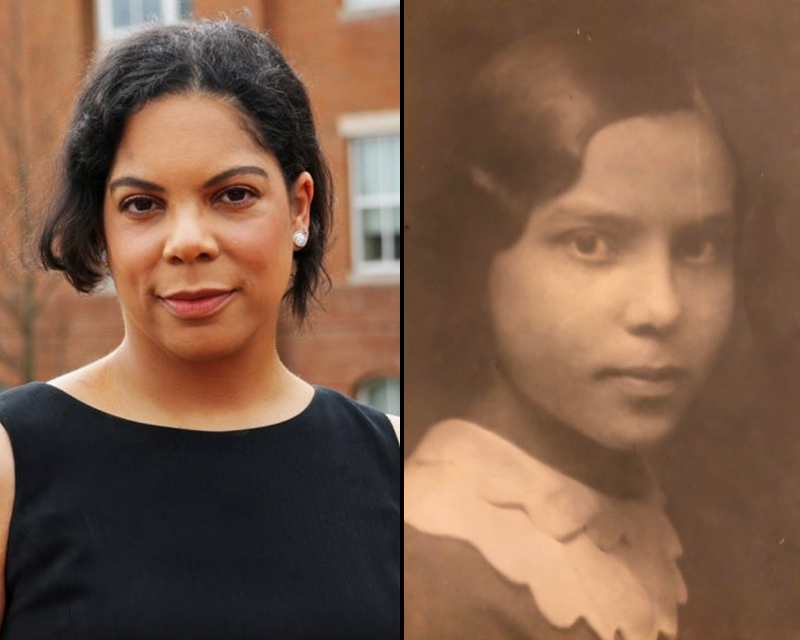
How did your grandmother influence your work today?
Right before my grandmother passed away, my father took me to see her. I was 13. On this particular visit, she said, ‘Jennifer, what do you want to be?’ I remember telling her I wanted to be either a teacher or a nurse. Her response was so profound. She said, ‘Well when you become a teacher or nurse, I want you to not be ordinary, but extraordinary! I want you to lead. I want you to inspire and do great things. You will be a leader.’ She said it with such conviction, as if she was speaking it into existence. She had a vision for all of her grandchildren. She believed in us, and she wanted us to believe in ourselves and to dream big. After hearing my grandmother’s words, I remember walking away feeling so confident and empowered.
She encouraged anyone she interacted with, especially women, motivating them to be their best and reach their potential. She was a champion for all women. She was a fierce leader.
Has your grandmother’s legacy impacted you in other ways?
My grandmother was good friends with Thurgood Marshall, former Supreme Court justice. While studying law at the University of Maryland, my grandmother connected Ms. Esther McCready, a young African American woman, with then-attorney, Thurgood Marshall, to sue the University of Maryland School of Nursing for denying her admission. Attorney Marshall sued the university and won. Ms. McCready successfully integrated the nursing school and went on to graduate, opening the doors to women of color.
Years later, I met Ms. McCready when I attended the University of Maryland School of Nursing, and we became friends. She was a mentor to me. My grandmother inspired Ms. McCready, and in turn, Ms. McCready inspired me when, at times, I doubted myself. When nursing school was very challenging, she encouraged me to keep going. I thought, ‘If she could persist with all of her obstacles, then my friends and I could certainly complete this journey.’
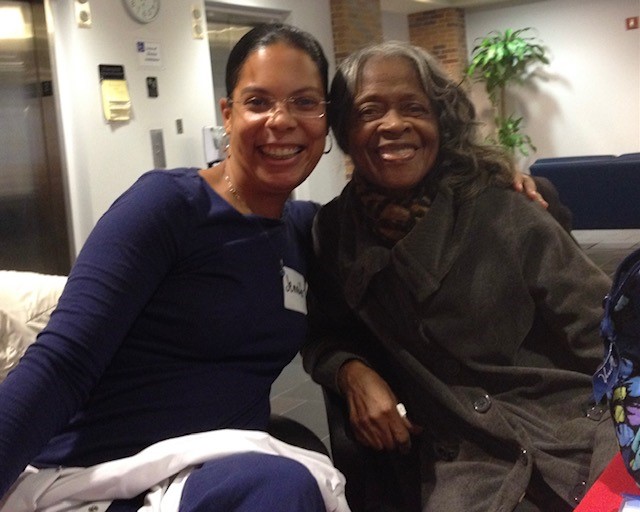
How has your grandmother’s contributions to civil rights shaped your teaching?
My grandmother's determination in the fight for civil rights and advocacy for vulnerable and underserved populations is something that I integrate into my teaching and my curriculum here at Notre Dame. I teach community health nursing to senior nursing students. We weave social justice. We talk about health disparities. We talk about the social determinants of health, about how macro-level social issues impact people’s health behaviors and health outcomes. It helps students to get a perspective of some of the barriers to quality healthcare, including education and discrimination based on race, religion, or gender. I use my platform to carry on her work and empower my students.
In a lesson on advocacy in nursing, my students wrote and sent letters to legislators of their choice about a nursing issue. I wanted them to see that they have a voice and that they should use their voice. Their letters were just outstanding. My grandmother would be really happy about that. I'm inspiring young women to be leaders, to have a voice, and to advocate, not just for themselves, but for the nursing profession and the patients they will care for.
How are you honoring your grandmother's legacy today?
My father lived in Baltimore all of his life, but in the last couple of years, he has lived in Chicago with my sister. When he came back to visit during the holidays, I made it my mission to consolidate his storage unit. In doing so, we discovered many of my grandmother's articles of clothing and hats. My father remembered that he had promised those items to the Maryland Center for History and Culture. He asked me to connect with the museum. I took pictures of everything for the inventory, and we made a gift on behalf of the family. They will be using those items for the upcoming exhibit.
Discovering my grandmother’s clothing and hats has sparked a passion in me to honor and continue in her spirit and legacy. It’s helped me to revisit her legacy and keep it alive. I hope that the exhibit will inspire young women to be leaders and to fight for justice. I will encourage my students to visit the museum to learn about her remarkable life.
Established in 1895, Notre Dame of Maryland University (NDMU) is a private, Catholic institution in Baltimore, Maryland, with the mission to educate leaders to transform the world. Notre Dame has been named one of the best "Regional Universities North" by U.S. News & World Report.



